Abstract
BACKGROUND: Clinical guidelines for using the prostate-specific antigen (PSA) test as a population-based tool vary. This study qualitatively explores the prostate cancer screening practices of African-American primary care physicians. METHODS: Eight telephone focus groups were conducted with 41 African-American primary care physicians from 22 states. Data were coded on five major topic areas relative to provider screening practices: use of serum PSA and digital rectal examination (DRE), counseling routine, factors influencing screening practices, familiarity with clinical guidelines, and use of educational materials RESULTS: Almost all (95%) of the physicians routinely recommended and offered prostate cancer screening to their patients, which was universally defined as consisting of both a PSA test and DRE. Most physicians reported offering the PSA test to asymptomatic, non-African-American men beginning around age 50, but African-American men or men with a family history of prostate cancer were offered the PSA test 5-10 years earlier. CONCLUSIONS: The observed practice patterns for prostate cancer screening among African-American primary care physicians do not evenly reflect both sides of the PSA screening controversy. For most physicians, concerns about prostate cancer in their patients outweighed concerns about the potential limitations of screening and the untoward side effects of treatment. These physicians adopted a more proactive approach toward use of the PSA test in asymptomatic men irrespective of their race or ethnicity.
Full text
PDF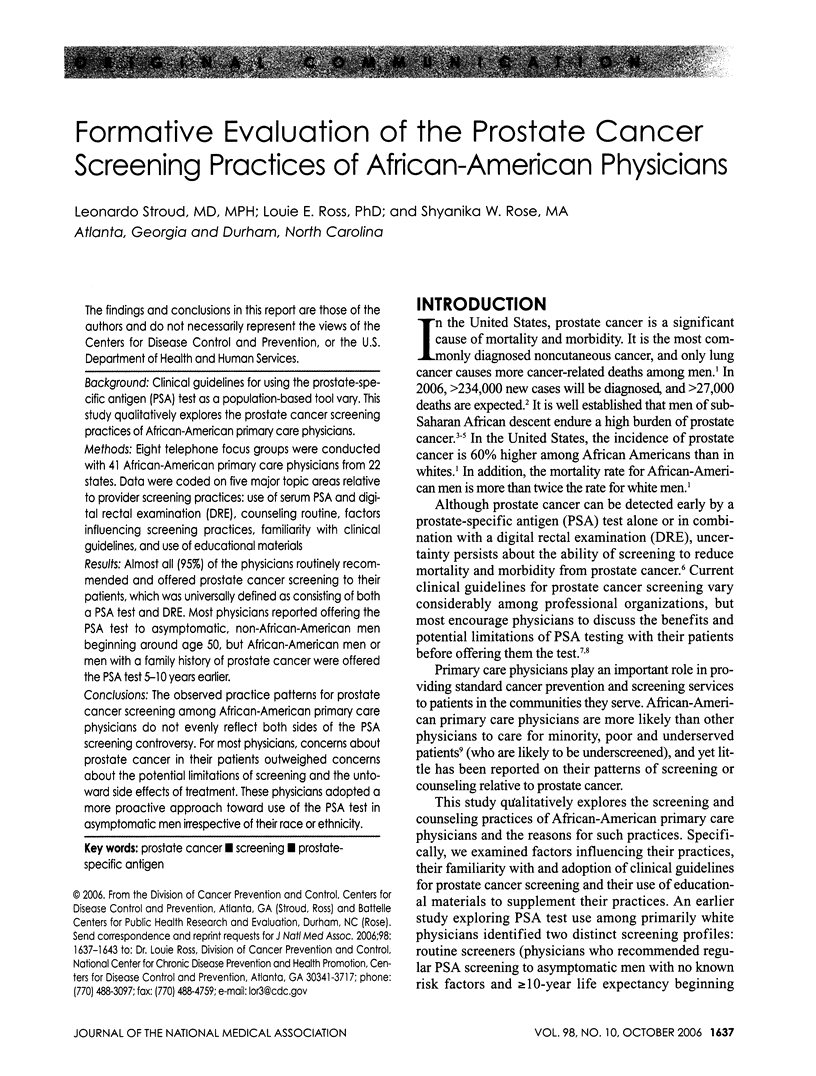
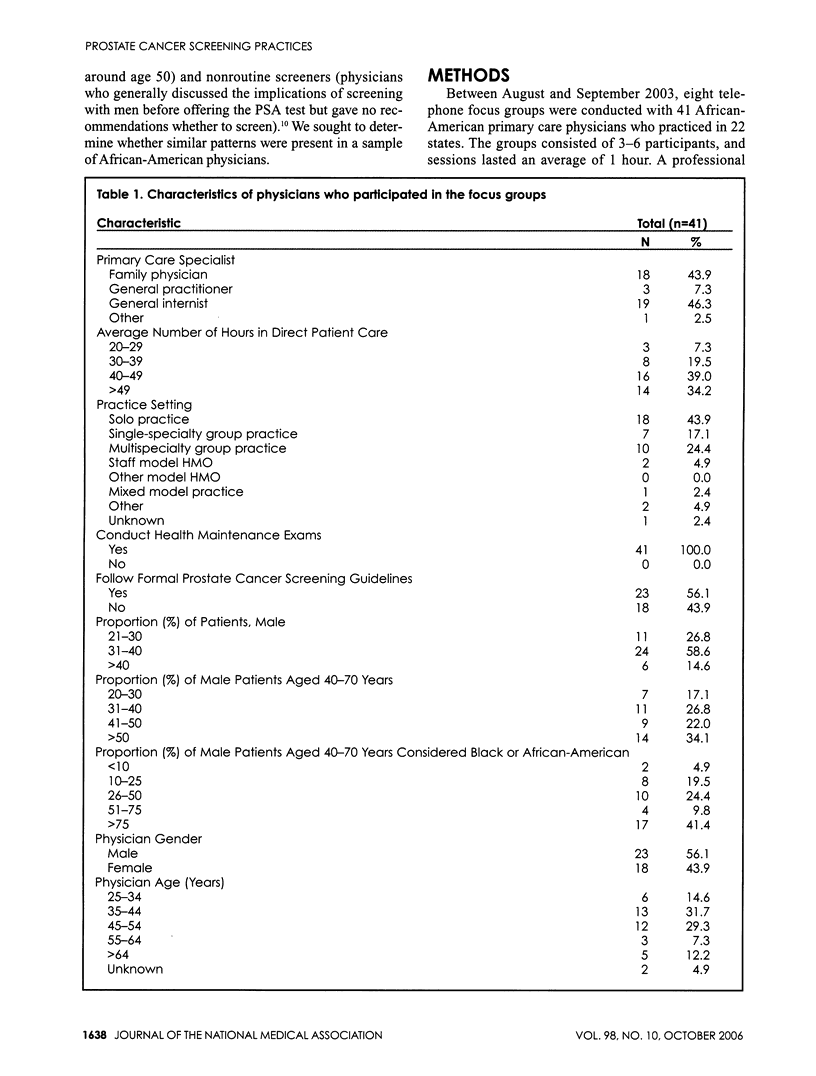
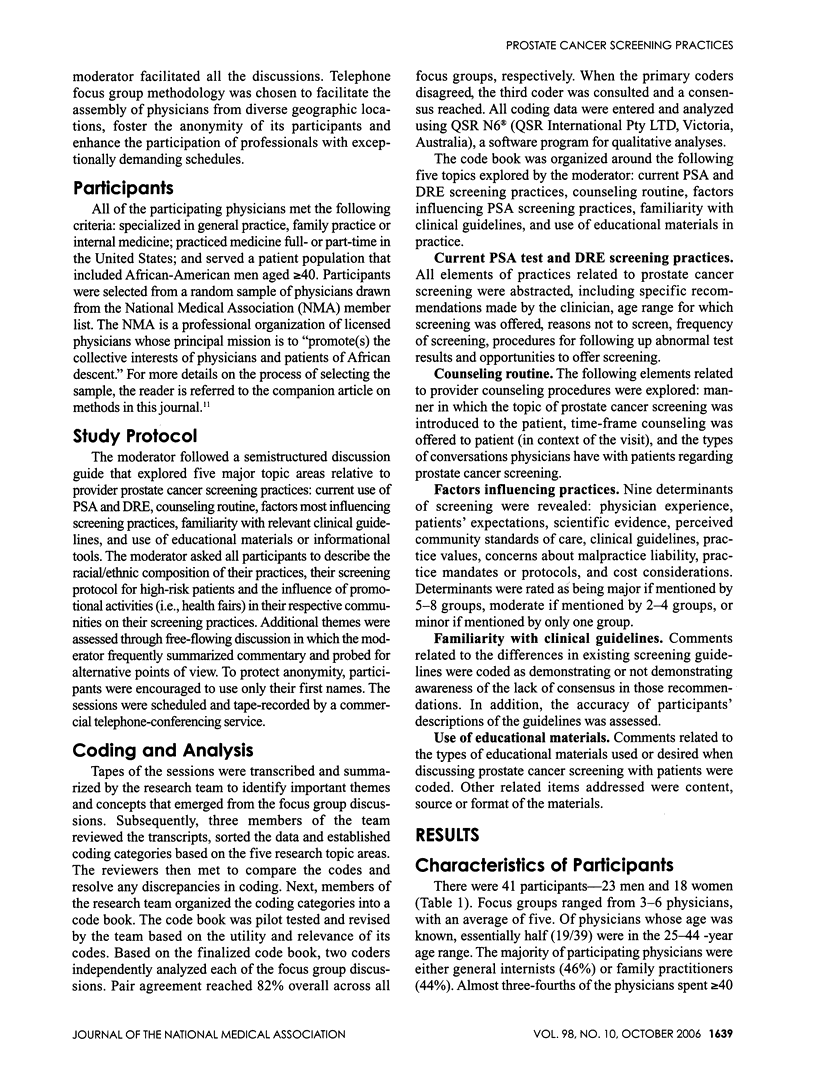
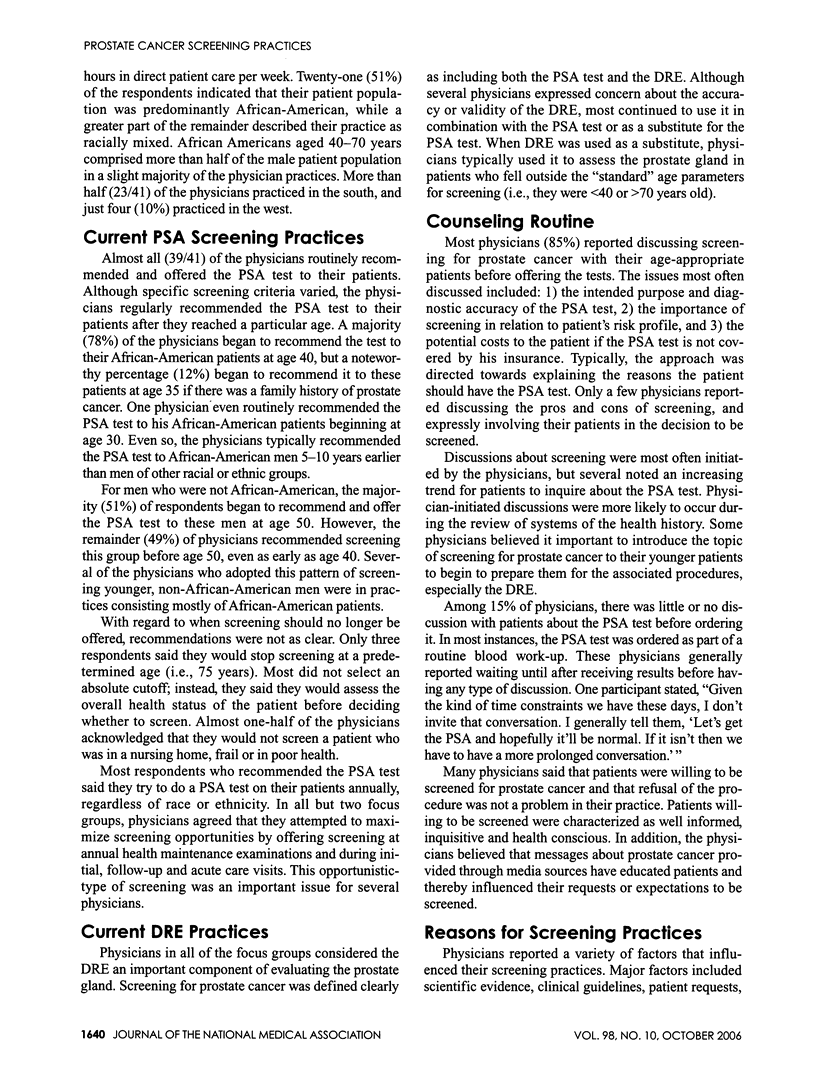
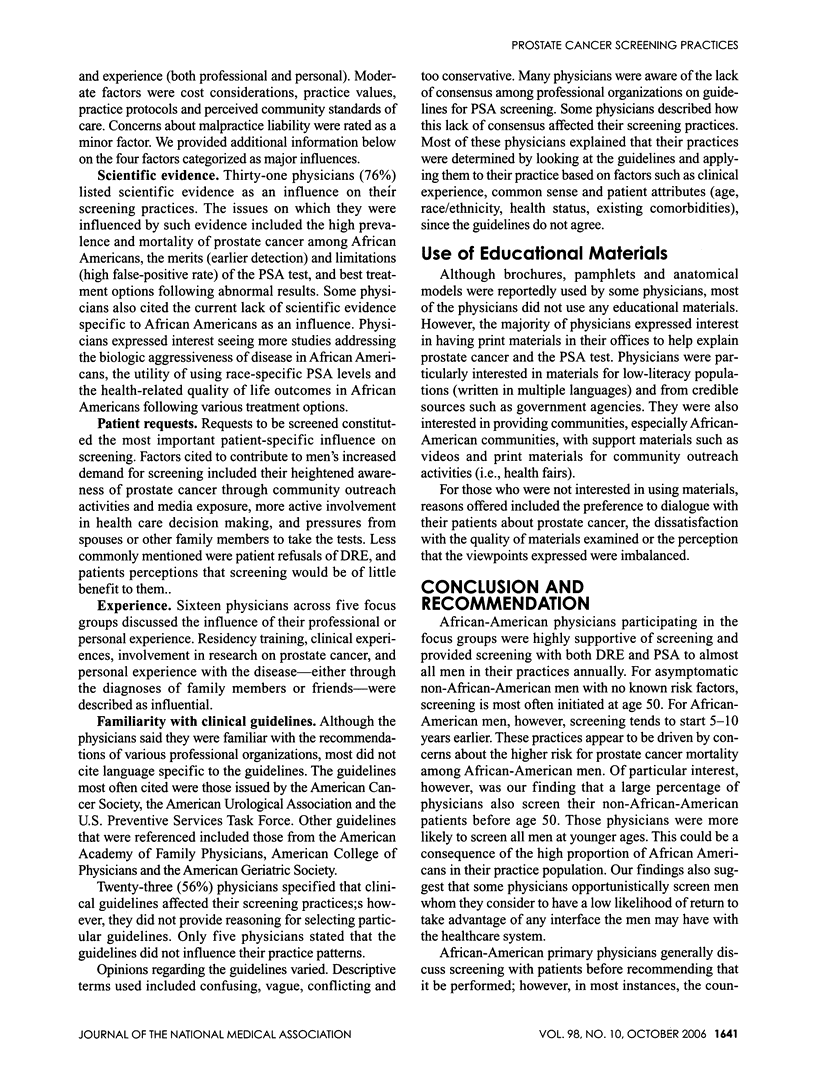
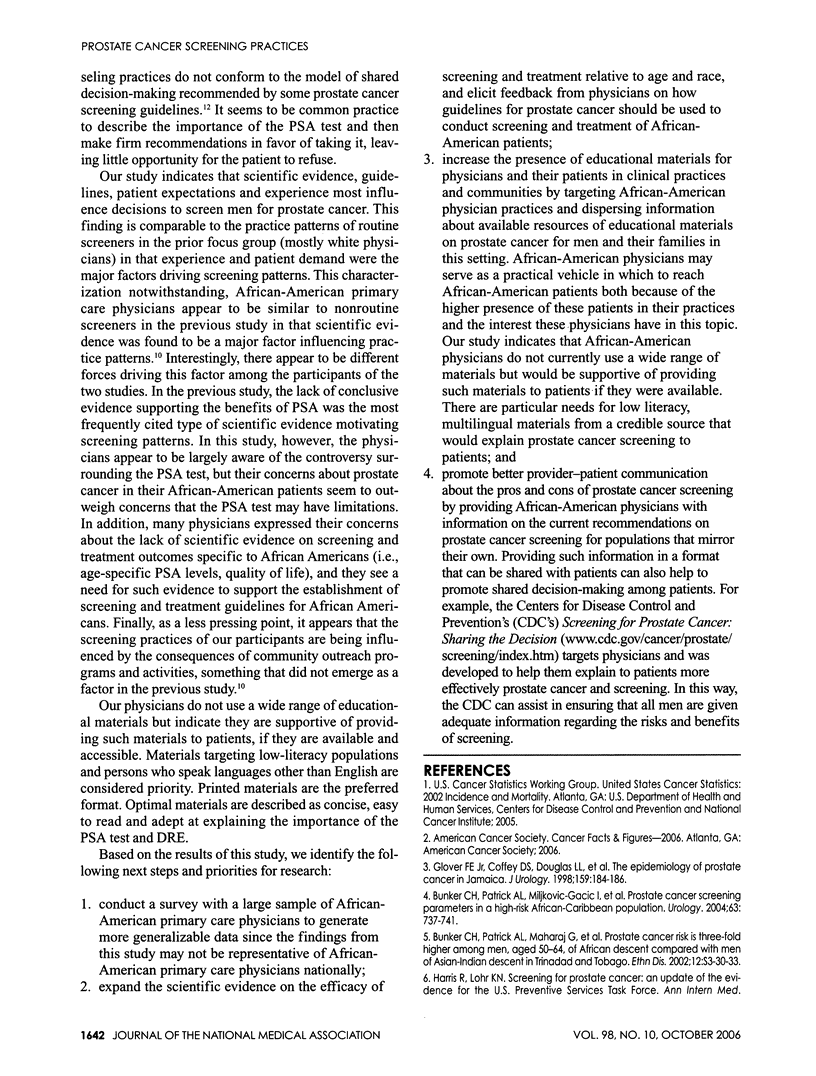
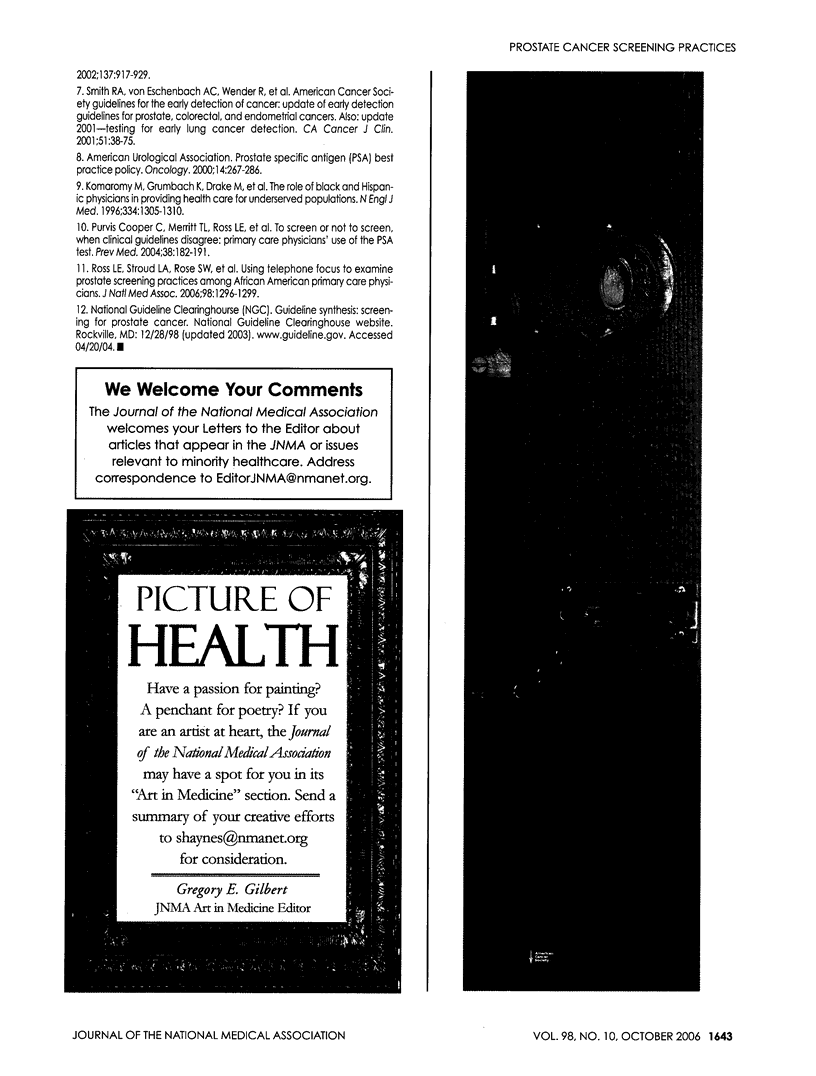
Selected References
These references are in PubMed. This may not be the complete list of references from this article.
- Bunker Clareann H., Patrick Alan L., Maharaj Gloria, Keenan Hillary A., Ramnarine Sham, Belle Andrew, Richard Jean Robert, Dhir Rajiv. Prostate cancer risk is three-fold higher among men, aged 50-64, of African descent compared with men of Asian-Indian descent in Trinidad and Tobago. Ethn Dis. 2002 Fall;12(4):S3–30-3. [PubMed] [Google Scholar]
- Bunker Clareann H., Patrick Alan L., Miljkovic-Gacic Iva, Konety Badrinath R., Belle Andrew, Richard Jean Robert, Dhir Rajiv. Prostate cancer screening parameters in a high-risk African-Caribbean population. Urology. 2004 Apr;63(4):737–741. doi: 10.1016/j.urology.2003.10.064. [DOI] [PubMed] [Google Scholar]
- Komaromy M., Grumbach K., Drake M., Vranizan K., Lurie N., Keane D., Bindman A. B. The role of black and Hispanic physicians in providing health care for underserved populations. N Engl J Med. 1996 May 16;334(20):1305–1310. doi: 10.1056/NEJM199605163342006. [DOI] [PubMed] [Google Scholar]
- Purvis Cooper Crystale, Merritt Tracie L., Ross Louie E., John Lisa V., Jorgensen Cynthia M. To screen or not to screen, when clinical guidelines disagree: primary care physicians' use of the PSA test. Prev Med. 2004 Feb;38(2):182–191. doi: 10.1016/j.ypmed.2003.09.035. [DOI] [PubMed] [Google Scholar]
- Ross Louie E., Stroud Leonardo A., Rose Shyanika W., Jorgensen Cynthia M. Using telephone focus groups methodology to examine the prostate cancer screening practices of African-American primary care physicians. J Natl Med Assoc. 2006 Aug;98(8):1296–1299. [PMC free article] [PubMed] [Google Scholar]


